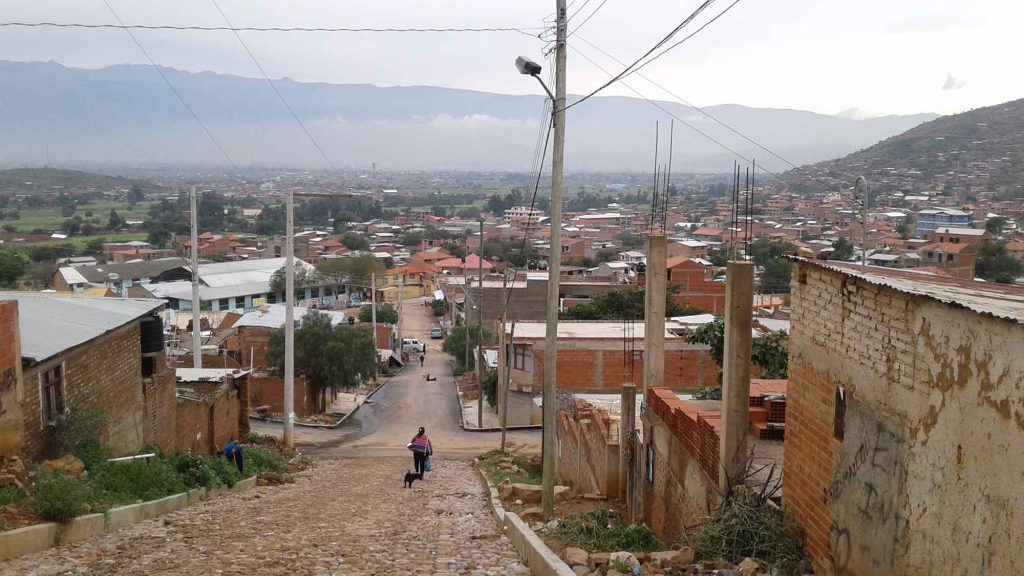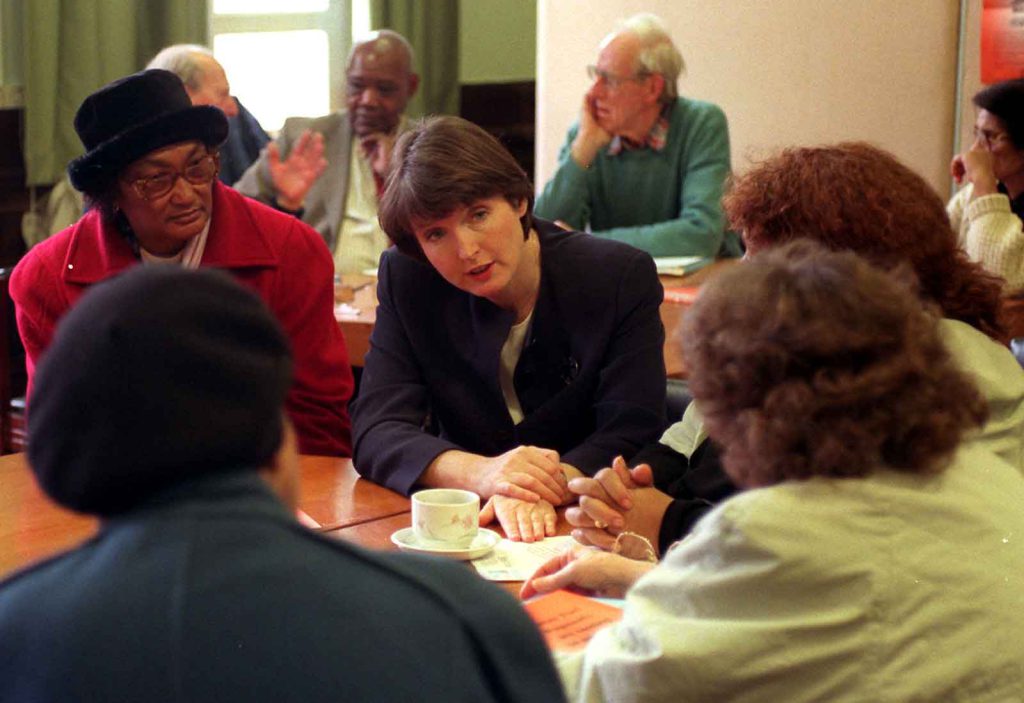Tax Season Woes Have Complex Roots

In the midsize Bolivian city of Cochabamba, informal work is the norm among the lowest-paid segments of society. This population includes recent rural-to-urban migrants living on the outskirts of the city—most of whom self-identify as belonging to one of the highland Indigenous language groups of Quechua or Aymara. These people earn a living selling goods in the many street markets or through cash-in-hand jobs on building sites. Overall, they pay little tax. The current left-leaning government is keen for this to change: It is hoping to build a social welfare state with a broad tax base to support it. Through campaigns, and simplified tax rules, the government is trying to encourage this part of the population to become fully compliant taxpaying citizens.
Contrary to what one might expect, I found through my fieldwork with this internal-migrant population that a majority were not avoiding tax simply to hold on to their hard-earned cash. Instead, they had a range of reasons for why they were willing to pay certain taxes but not others. The people I spoke to during my eight months of anthropological research in Cochabamba in 2018 specifically avoided paying income tax, as this was an exchange with the state that made little sense to them. The services paid for by these taxes, such as roads and hospitals, rarely reached the poor suburbs that these families lived in. They were, however, keen to pay property taxes and commercial license taxes—payments that they saw as securing their legal rights to their land, houses, and commercial selling spaces. These were not perceived as creating interdependence with the state but rather as offering independence—the right to own a home and make a living when the state did not provide.
Taxation is ubiquitous in most societies today—and very much on many people’s minds, from the United Kingdom to the United States, in the month of April. This fiscal relationship, including tax breaks and benefits, is a core element of the social contract between the state and its citizens. As 20th-century French sociologist and anthropologist Marcel Mauss famously argued, systems of exchange create society. By extension, different types of exchanges create distinct types of societies. How the tax burden is distributed throughout society, the manner in which taxes are collected, the names those taxes are given, and the way people talk about taxes or tax evasion all influence or reflect how people think about their economy and the society they live in—and that varies dramatically from country to country.
The labels attached to money as it moves between the state and taxpayers matter a great deal. In 1997, the U.K. instituted a Winter Fuel Payment—a universal benefit automatically paid to most U.K. residents over the age of 66. The creation of the winter fuel allowance was in response to the predicament now commonly referred to as the “eat-or-heat dilemma”: Many people, especially in lower-income brackets, had to choose between food bills and heating bills. This put the sick and the elderly, in particular, at risk.
The winter fuel payment was controversial because of its universal nature: Alongside those pensioners who desperately needed the payment to survive the winter months were very wealthy ones who were not struggling at all. From the government’s perspective, it was too expensive to work out who needed the benefit and who didn’t. It was cheaper and easier to simply give it to everyone, to create a universal benefit.
But this caused a huge uproar. Interestingly, some of the most vociferous individuals arguing against the universal winter fuel payments were recipients who felt they didn’t need it. Several famous and well-off residents in receipt of the benefit, such as writer and politician Dame Joan Bakewell, businessman and TV star Lord Alan Sugar, and millionaire nightclub owner Peter Stringfellow, among others, publicly stated that they did not want the benefit and that if it were paid to them against their will, they would donate it to charity.
Yet that same demographic has been happy to receive tax breaks. In 2015, the U.K. government presented plans to significantly increase the tax-free element of inherited property to 1 million pounds (US$1.3 million) by 2020—a move that will benefit families with high-value houses. This has not been met with any reluctance from wealthy pensioners. Instead, it has been lauded as a sensible change in an era of skyrocketing housing prices, when many homes of the middle classes are now valued at well above half a million pounds.
From one perspective, these two changes in how money flows between the state and its citizens are just a plus and minus on a ledger. But to the people involved, they signify far more than that. The winter fuel allowance was marked as a benefit, something paid to those in need, to net-recipients of the U.K. welfare state. A lowered inheritance tax, on the other hand, allows families to hold on to what they consider to be rightfully theirs. Receiving a benefit might seem like stealing from the state; retaining more of the profits created by a skyrocketing housing market prompts few moral qualms.
Sometimes whether a tax is accepted or not by the populace comes down to cultural factors that differ between nations. Tax breaks and subsidies targeted at families offer good examples.
My home nation of Sweden, for example, is renowned for its extensive financial support for families: Caregivers receive lengthy, flexible paid parental leave from their jobs—in most cases, 56 weeks paid at just below 80 percent of their usual income (but at a maximum of US$4,102 per month), with an additional 13 weeks at a lower rate. In the U.K., where I live and work, parents receive just six weeks of parental leave at 90 percent of their normal salary, plus 33 weeks with a low, basic payment of US$192 per week (or 90 percent of their typical pay, whichever is lower), which is followed by 13 weeks of unpaid leave.
The differences extend to child care: What someone pays in Sweden for a month of child care might be eaten up in the U.K. in a few days. The heavily subsidized, maximum monthly fees in Sweden are set at about US$135 per month for a first child (later children are cheaper, and the fourth child is free). In addition, parents receive a child benefit of about US$135 per month or more. In the U.K., child care is partially subsidized after the child turns 3, but in younger years, the average costs are US$332 per week for full-time care.
As a mother of two young children, I often hear the argument that the whole concept of subsidies and benefits for parents is unfair—that taxpayers without children never see the same return on the taxes they pay as parents do. Perhaps strangely, I hear this complaint far more frequently in the U.K., where the benefits are smaller, than in Sweden, with its more generous support to families.
While most non-parents in the U.K. appreciate the societal good of ensuring that children are cared for and educated, they nonetheless often view their own fiscal compliance as an act of generosity and see the system as rigged to trap them in a role of net-contributor. They forget, perhaps, that these children will grow up to become taxpayers themselves, paying society back and contributing to the pensions of parents and non-parents alike.
In Sweden, by contrast, it seems to be easier for people to take the long view with regard to their contributions to and returns from the state. The Swedish tax office crafts a much more individual relationship with each taxpayer, in contrast with the U.K., which treats taxpayers as part of families and social classes. For instance, in Sweden, student loans and grants are awarded to all individuals equally, regardless of parental income. In the U.K., a student’s entitlement to loans and grants depends heavily on their parent’s incomes.
The lesson is simply that different cultures view taxes in distinct ways.
In Bolivia, the Evo Morales government has run multiple campaigns to encourage the population to register as taxpayers. With slogans such as Tus impuestos, tu país (Your taxes, your country), it hopes to convince its citizens of the moral good, as well as the efficacy, of paying tax. In its campaigns, the state employs language that is typically used by Indigenous rights movements in the country, such as the phrase vivir bien (live well), to imply solidarity with Indigenous populations.
But this strategy wasn’t working for my research participants, most of whom self-identified as belonging to an Indigenous group. They did not view taxes as a single entity. To them, their fiscal relationship with the state was made up of multiple and varied exchanges, each demanding its own cost-benefit analysis.
Persistent political corruption and a history of exploitative fiscal systems during colonialism and the postcolonial period have shaped this population’s distrust of state institutions. (However, my research participants do remain staunch supporters of Morales and believe that he is doing his best to champion the cause of the poor in an otherwise corrupt system.) I also found that the consensus among my research participants was that public services, often located in the city centers, far away from the periurban areas where they lived, were funded through increased income from the hydrocarbon industry, not from income tax. The government itself had reinforced this view by campaigning on its success in boosting public coffers by redrawing contracts with foreign companies extracting resources in Bolivia. In short, due to corruption, lack of access to public services, and alternative funding streams for these services, they were reluctant to pay income tax.
Proof of paid property and commercial license taxes, on the other hand, were the strongest ways for my interviewees to lay claim to a plot of land or selling spot. This mattered deeply to them, especially in a complex property market frequently impacted by disputes and endemic corruption.
The Bolivian government should take heed: Blanket strategies to encourage tax compliance or to mollify concerns about benefits often don’t work. Each tax, benefit, and population is different. The reasons for how and why people accept or protest certain payments is complicated and deeply cultural. Equally, citizens of all countries should examine the political and moral implications of the tax systems they live within and consider how the way they pay tax, or receive benefits, might influence their relationship with their fellow citizens.
































